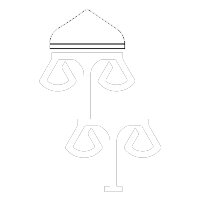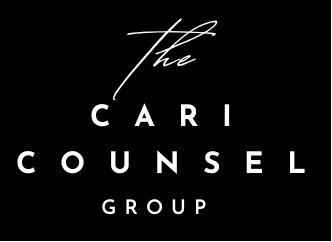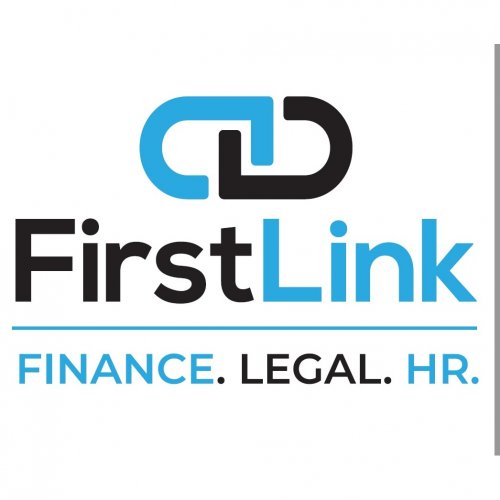Best Antitrust Litigation Lawyers in Port of Spain
Share your needs with us, get contacted by law firms.
Free. Takes 2 min.
List of the best lawyers in Port of Spain, Trinidad and Tobago
About Antitrust Litigation Law in Port of Spain, Trinidad and Tobago
Antitrust litigation in Port of Spain, Trinidad and Tobago, centers on laws and regulations designed to promote fair competition and prevent anti-competitive practices within the marketplace. The legal framework prohibits agreements, mergers, or business practices that unfairly restrict competition or create monopolies, ensuring a level playing field for businesses and protecting consumers from exploitative behavior. In recent years, the enforcement of competition law has intensified as the Trinidad and Tobago economy grows and integrates with international markets. While the area of antitrust law is comparatively new within the local legal landscape, it is increasingly relevant for both businesses and individuals operating within the region.
Why You May Need a Lawyer
There are several situations in which you may seek legal advice or representation in matters involving antitrust litigation in Port of Spain:
- Your business is accused of engaging in anti-competitive behavior such as price fixing, bid rigging, or market sharing.
- You suspect a competitor or supplier is operating as a monopoly or abusing a dominant market position.
- You have concerns about the legality of a proposed merger or acquisition and how it may impact market competition.
- Your business is under investigation by a regulatory body such as the Fair Trading Commission.
- You are a consumer or business who has suffered harm due to anti-competitive agreements or market manipulation.
- There is a need to assess and ensure compliance with competition and antitrust regulations in your business operations or contracts.
- You wish to challenge or defend legal proceedings involving competition law in the courts of Trinidad and Tobago.
Due to the complexity of antitrust regulations and the potential repercussions for non-compliance, having an experienced lawyer can help navigate investigations, litigation, settlements, or compliance reviews.
Local Laws Overview
The primary legal instrument governing antitrust and competition law in Port of Spain and the wider Trinidad and Tobago region is the Fair Trading Act, Chapter 81:13. This Act establishes the Fair Trading Commission and defines various prohibitions and obligations pertaining to competitive practices. Key provisions include:
- Prohibition against anti-competitive agreements - including price fixing, collusive tendering, or any contracts that restrict competition.
- Regulation of mergers and acquisitions that may substantially lessen competition or create a dominant position in the market.
- Prohibition of abuse of dominant position - businesses with significant market share are not permitted to exploit their status to disadvantage consumers or competitors.
- Enforcement powers given to the Fair Trading Commission - including investigation, hearings, and the ability to recommend legal proceedings or administrative fines.
- Possibility for private parties to bring claims for damages resulting from anti-competitive conduct.
The Fair Trading Act applies broadly to all entities engaging in economic activities within Port of Spain and throughout Trinidad and Tobago, with some exceptions for certain regulated industries. Enforcement and interpretation continue to evolve through the work of the Fair Trading Commission and the local courts.
Frequently Asked Questions
What is antitrust litigation?
Antitrust litigation refers to legal cases involving allegations of anti-competitive business practices, such as price fixing, monopolization, abuse of market dominance, or unfair agreements that negatively impact competition.
Which authority enforces antitrust laws in Trinidad and Tobago?
The Fair Trading Commission is the main regulatory body responsible for enforcing the Fair Trading Act and overseeing compliance with competition law.
What are examples of anti-competitive practices?
Some common examples include colluding to set prices, sharing markets or customers between competitors, bid rigging in tenders, exclusive dealing, and abusing a dominant market position.
Who can file an antitrust complaint?
Both private individuals and businesses affected by anti-competitive behavior can submit a complaint to the Fair Trading Commission, and in some cases, can pursue legal action in court.
What penalties exist for violating antitrust laws?
Violations can lead to administrative fines, cease and desist orders, damages claims, and potential reputational harm for those found guilty.
Are all mergers subject to review?
Not all mergers are subject to review. Only those that may substantially lessen competition or create a dominant market position are likely to attract scrutiny from the Fair Trading Commission.
How do I know if my business is compliant?
It is important to conduct regular legal reviews of your business agreements and practices, frequently with assistance from an experienced antitrust lawyer, to ensure adherence to the Fair Trading Act.
Can consumers benefit from antitrust litigation?
Yes, successful litigation can result in fairer prices and more choices for consumers if anti-competitive practices are eliminated and markets are made more competitive.
Does the law apply to foreign companies operating in Trinidad and Tobago?
Yes, any entity conducting economic activities within Trinidad and Tobago, including foreign companies, is subject to the Fair Trading Act’s provisions.
How long does an antitrust investigation take?
The duration of an investigation depends on the complexity of the case and the willingness of parties to cooperate. Some matters may resolve in months, while more significant cases can take longer.
Additional Resources
Several organizations and bodies provide information, guidance, and official support concerning antitrust law and competition matters in Port of Spain:
- Fair Trading Commission - The main enforcement body. Responsible for investigating complaints, enforcing the law, and promoting competition awareness.
- Ministry of Trade and Industry - Offers resources on regulatory compliance for businesses operating in Trinidad and Tobago.
- Law Association of Trinidad and Tobago - Provides information and can help you find a legal professional with expertise in antitrust litigation.
- Chambers of Commerce - Local chambers often provide seminars or materials on compliance with fair trading and competition practices.
- Consumer Affairs Division - Assists consumers who suspect anti-competitive practices affecting their rights.
Next Steps
If you believe you are affected by anti-competitive practices, or if your business is facing an antitrust investigation or potential litigation, follow these steps:
- Document any suspicious conduct or agreements that you think may breach competition laws.
- Contact the Fair Trading Commission for initial guidance or to file a complaint if applicable.
- Seek specialized legal advice from a lawyer experienced in antitrust law in Trinidad and Tobago.
- Review your business practices and supply agreements with your legal advisor to ensure ongoing compliance with all relevant laws.
- If contacted by an authority or served with legal documents, respond promptly and with the assistance of legal counsel.
Antitrust law is complex and the implications of non-compliance can be serious. Engaging a qualified legal professional as early as possible will help protect your business, clarify your rights, and support your interests at every stage of any investigation or litigation.
Lawzana helps you find the best lawyers and law firms in Port of Spain through a curated and pre-screened list of qualified legal professionals. Our platform offers rankings and detailed profiles of attorneys and law firms, allowing you to compare based on practice areas, including Antitrust Litigation, experience, and client feedback.
Each profile includes a description of the firm's areas of practice, client reviews, team members and partners, year of establishment, spoken languages, office locations, contact information, social media presence, and any published articles or resources. Most firms on our platform speak English and are experienced in both local and international legal matters.
Get a quote from top-rated law firms in Port of Spain, Trinidad and Tobago — quickly, securely, and without unnecessary hassle.
Disclaimer:
The information provided on this page is for general informational purposes only and does not constitute legal advice. While we strive to ensure the accuracy and relevance of the content, legal information may change over time, and interpretations of the law can vary. You should always consult with a qualified legal professional for advice specific to your situation.
We disclaim all liability for actions taken or not taken based on the content of this page. If you believe any information is incorrect or outdated, please contact us, and we will review and update it where appropriate.















